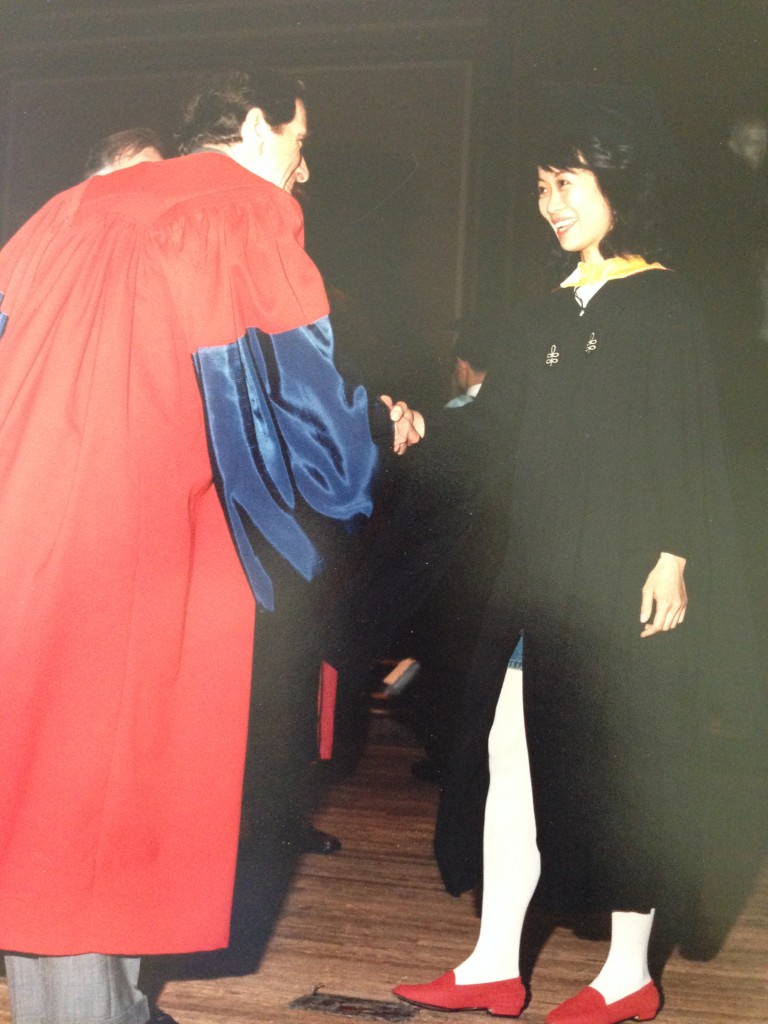“I have to admit today – even twelve years after graduation – I’m still insecure about my own worthiness.”

(Image source: harvardmagazine.com)
Just one minute into her maiden speech on Harvard 2015 Class Day last week, Oscar-winning actress Natalie Portman revealed one of her innermost secrets to graduating seniors.
“I feel much like I did when I came to Harvard yard as a freshman in 1999. I felt like there’d been some mistake that I wasn’t smart enough to be in this company and that every time I open my mouth I would have to prove I wasn’t just a dumb actress.”
Frankly, I was stunned. It felt almost awkward to me.
Who would think that she was a dumb actress?

(Image source: imdb.com)
“When I got to Harvard (in 1999) just after the release of Star Wars Episode One, I knew I would be starting over in terms of how people viewed me. I feared people would assume I got in just for being famous and that they would think I was not worthy for the intellectual rigor here. And they would not have been far from the truth.”
Still I wasn’t convinced.
Hasn’t she already earned her Harvard degree? Hasn’t she already clinched an Oscar?
“When I came here, I’d never written a 10-page paper before I’m not even sure I’d written a five-page paper. I was alarmed and intimidated by fellow students who came here from Dalton or Exeter who said that when compared to high school the workload here was easy.
I’ve been acting since I was 11.
I come from a family of academics and was very concerned with being taken seriously.”
As it turns out, her self-deprecating confession was a perfect set up for her to connect with all of us.
The truth is, at one point or another, we all feel inadequate, insecure or dumb.
I certainly felt inadequate, insecure and inferior to all the big brains surrounding me when I first arrived at Harvard as a graduate student, eight years before Portman was a freshman.
I too had eight years of media background before coming to Harvard. But even with the prior professional experiences and numerous journalism awards under my belt, I too felt like a fraud at times. Like Portman, I had never written a 10-page paper before let alone a 50-page thesis to graduate! I needed desperately to prove that I could do it.
How did I navigate the world of genius with mega-wattage of intellectual firepower? I felt like a fish out of water and a fish in a shark tank at the same time. What to do?
Looking back, my survival instincts kicked in.
I did what I did best – asking questions and making friends for the sake of learning and relationship building. Having been a professional journalist, my comparative advantage was asking questions shamelessly, ceaselessly, openly and honestly. I also tried to ground myself by staying hungry and humble. When I finally passed all my exams and handed in my paper, I remember one of the senior administrative staff saying to my face, “Well Congratulations. You’ve proved to be more than a pretty face!” Whether or not she meant it as a backhanded compliment, I sensed bias. I swallowed my pride and smiled.
On the day I received my diploma, I still felt a tint of insecurity beyond my achievement.

But the question is –how do you deflect perception to define your own reality?
As you watch Portman’s speech, you will learn that throughout the different roles she played – from acting as a child, to attending college for a serious liberal arts education, and back to acting, she admitted being totally unprepared for what was ahead of her. However, being aware yet unafraid, she dived into each new challenge out of “total oblivion to her own limitations.”

(Image source: usatoday.com)
The truth is, sooner or later, we will hit limitations unless we broaden the variety and range of our roles, and deepen the meaning of our work not only through our own definition of success, but also through the lens of others. What is the value of our work? Who benefits from our service? What is our contribution to whom?
It is one thing that we want go as far as possible, or to be bold and take risks while we are young. But it is quite another if we remain a child, like Portman’s 4 year old son whose aim and focus during a baseball arcade game won him a prize. As her little boy was gloating over the glory of winning, Portman realized…
“In a child’s nature, we see many of our own innate tendencies, and in that moment, I saw myself in him, and perhaps you do, too. Prizes serve as false idols everywhere,”
Achievement is wonderful when you know why you are doing it—and if you don’t know, it can be a terrible trap.”

